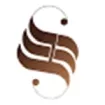- within Intellectual Property topic(s)
- in Asia
- within Intellectual Property, Employment and HR, Food, Drugs, Healthcare and Life Sciences topic(s)
Licensing to import breeding cattle is an organized process that aims to ensure the imported cattle's quality and health, enhance animal production, and improve the local breeds. The General Organization for Veterinary Services "GOVS" and the Central Department for Veterinary Quarantine and Inspection are responsible for issuing this license, in cooperation with the competent quarantine administration.
The conformity of imported cattle to the required health and production standards is verified through a series of necessary procedures and required documents are issued to confirm that the imported animals are healthy and disease-free, in line with the decisions of the International Office of Epizootics.
Required Documentation:
- An application to import breeding cattle, including the Country/ Region of origin, their number, shipping and arrival destinations, and the expected date of arrival.
- A health certificate issued by the competent veterinary
authorities in the country of origin, bearing the state seal and
certified by the Egyptian authorities, which must include the
following:
- Ensuring that the Country/ Region of origin are free from Avian Leucosis disease, according to International Office of Epizootics
- The imported animals must be from a herd with no record of infection during the three years preceding the import.
- The imported animals must be from an original herd on the farm or from its offspring and not from other animals introduced to the herd.
- The imported cattle must not exceed 28 months of age at the time of shipment and must have undergone two serologic tests, at least 90 days apart, with negative results.
License Procedures:
1- Before Importing:
- Submit an application to the General Organization for Veterinary Services to import breeding cattle.
- According to International Office of Epizootics in Paris, the import may not be approved unless the General Organization for Veterinary Services verifies that the Country/ Region of origin are free from Avian Leucosis disease.
2- Upon the Arrival of the Consignment:
- Animals are quarantined in veterinary quarantines for 33 days. The Animal Health Research Institute, in cooperation with the veterinary quarantine doctors, collect samples for lab examination during the first week of their arrival, before carrying out the quarantine vaccinations, to ensure that they do not have symptoms of Leucosis disease.
- Animals that test positive for the disease during the quarantine period will be slaughtered at the importer's expense without compensation.
- After the 33-day quarantine period, the consignment is released under quarantine. Consignments, in which some animals were found to be positive, are placed under veterinary quarantine in the governorates, and the following measures are to be taken:
- The veterinary quarantine has to be in an empty farm at least 500 meters away from any farm.
- The Director of Veterinary Medicine in the competent Directorate shall be notified and follow up on the quarantined consignment while keeping a record of farm animals.
- The Health Directorate, the Supply Investigations Directorate, and Water Bodies Monitoring Authority in the Governorate shall be notified.
- Farm animals and their offspring are tested every 6 months for Leucosis by Agar Gel Immunodiffusion (AGID) Test, or Enzyme-linked Immunosorbent Assay (ELISA) test at the Animal Health Research Institute twice a year. The herd shall be considered disease-free if four consecutive tests came out negative; accordingly, the herd shall be released.
- The costs of the tests are at the expense of the animal owner.
- Infectious animals are slaughtered in a government slaughterhouse without compensation, and a necropsy report is prepared and notified to the Central Administration of Preventive Medicine at the General Organization for Veterinary Services. Meat inspection rules are applied to the meat of slaughtered animals.
- It is prohibited to dispose of animals and their offspring on farms that have not been officially approved to be released in any way, except for slaughtering in a government slaughterhouse under veterinary supervision.
- During the veterinary quarantine period, fertilization is done by artificial insemination with frozen semen.
The content of this article is intended to provide a general guide to the subject matter. Specialist advice should be sought about your specific circumstances.


